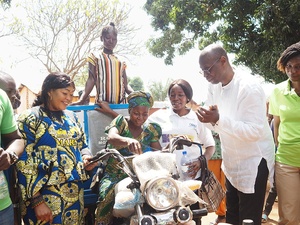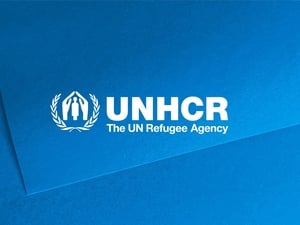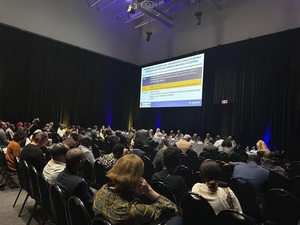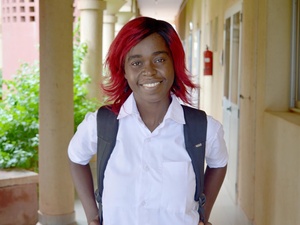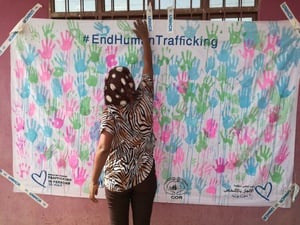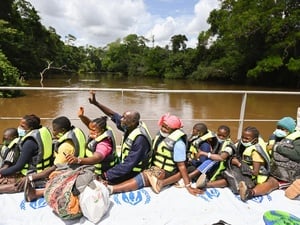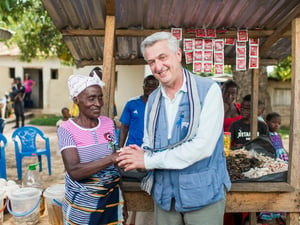Crisis deepens in Cote d'Ivoire, with 200,000 displaced within Abidjan
Crisis deepens in Cote d'Ivoire, with 200,000 displaced within Abidjan
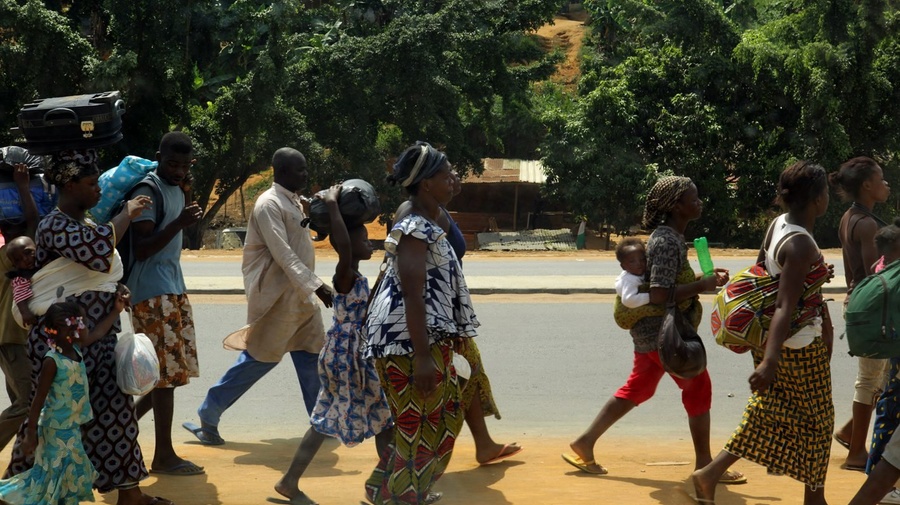
Civilians leave the dangerous suburb of Abobo in Abidjan. UNHCR is worried about access to the needy.
ABIDJAN, Côte d'Ivoire, March 4 (UNHCR) - Recent fighting between rival forces in Côte d'Ivoire's commercial capital, Abidjan, has displaced more than 200,000 people, the UN refugee agency said on Friday, while warning that getting access to the needy was becoming increasingly difficult.
UNHCR staff said it was getting harder for humanitarian organizations to reach people who have fled the northern suburb of Abobo for safer areas of Abidjan as well as the needy in western Côte d'Ivoire, where there are an estimated 70,000 internally displaced people.
In neighbouring Liberia, UNHCR and its partners are struggling to help more than 70,000 Ivorian refugees who have crossed the border amid the mounting tension that followed last November's presidential election. Rivals Laurent Gbagbo and Alassane Ouattara both claim victory and the tension between the two sides erupted into conflict in Abobo in the last week off February.
Most of the displaced in Abidjan are staying with friends or relatives, but large numbers - possibly a quarter of the displaced - are staying in temporary locations around the city, including in churches and other communal places. These groups are in urgent need of humanitarian help.
UNHCR is seeking access to these vulnerable individuals, including by working through NGOs that the refugee agency has been coordinating with. But the humanitarian space in which people can find shelter, and aid workers help them, is being squeezed hard in Abidjan and elsewhere in Côte d'Ivoire.
The security situation has been deteriorating in Abidjan, where several roadblocks manned by armed groups have been set up. The fighting in Abobo, which is normally home to around 1.5 million people, has also disrupted communications by destroying SMS and television transmitters.
"In this environment, it is extremely problematic for humanitarian agencies to be operational and reach the displaced," said Jacques Franquin, UNHCR's representative in Côte d'Ivoire, adding that the agency was working with NGOs to try and find ways to help the displaced communities.
"With the increasing level of insecurity and anti-UN sentiment in Abidjan, staff of UNHCR and other UN agencies may find themselves unable to report to work," said a UNHCR situation report on Thursday. UNHCR, meanwhile, continues to try helping the forcibly displaced.
Meanwhile, a large number of refugees from Liberia, who are unable to repatriate, earlier this week made their way into the UNHCR compound in Abidjan and have been staying peacefully in a car park. UNHCR is looking at solutions for them.
UNHCR is also concerned about a group of 60 families trapped inside a church in Abobo and without proper food, water or sanitation. "We have appealed to combatants for these people to be let out," a spokesperson said.
Insecurity in Abidjan has also spread to the Deux Plauteaux, Cocody, and Koumassi neighbourhoods and the business district of Plateau. Heavy fighting has also taken place in the west of the country around Duékoué as well as in Blolequin about 90 kilometres further south.
In eastern Liberia, UNHCR has registered some 40,000 refugees since the elections in November. Since February 24, these have been joined by 32,800 new arrivals, putting local communities and the Liberian authorities under considerable strain.
Host communities and refugees are in need of food, and road access problems continue to make it difficult to get aid to people in need in eastern Liberia. Meanwhile, UNHCR is rushing to build a second camp as the facility at Bahn starts to fill up.


